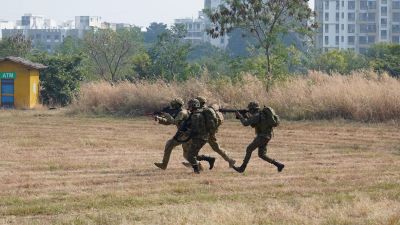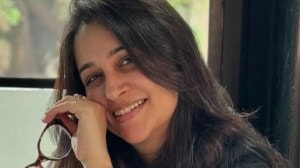Relooking a black comedy that stood the test of time
December 2: When 24 year-old Satish Alekar wrote Mahanirvan in 1974, he did not know the play would inspire multiple productions by theat...

December 2: When 24 year-old Satish Alekar wrote Mahanirvan in 1974, he did not know the play would inspire multiple productions by theatre groups across the country for the next 25 years. And that a retrospective would be needed to probe into the phenomenal staying power of the black comedy.
But what playwright Alekar terms as a “sweet accident in the prime of youth” will now be discussed for two days at a symposium to be held at the Yashwantrao Chavan Pratishthan, Mumbai, on December 11 and 12.
“I had never imagined that Mahanirvan will form an important part of serious theatre activity all over India. It was just a mistake I did not have to regret,” Alekar told Express Newsline. He said the two-day symposia will assess the likeability of the comedy. “The play struck a chord in most theatre groups of India. It has been performed in Bengali, Hindi, Dongri and Gujarati. A pop version of the play was also performed. The Konkani Mahanirvan will be presented at the Chavan Centre on Dec 11 by a Goa group,” added Alekar, who is currently based in Pune at the Theatre Academy.
Mahanirvan is based on the incidents that follow the death of a person in a middle-class chawl. The reactions of the wife and son of the deceased, relatives and neighbours generate humour, but bring out the hypocrisy in the Indian society. “The theme is universal. Post-death rituals are practised anywhere, more so in a traditional Indian society. Alekar has poked fun at the false seriousness made mandatory during death rites. The play offers a peculiar humourous situation which can inspire any theatre person,” says one of the organisers of
at the Chavan Centre. “It is the right time to look back at various manifestations of the play. The play has stood the test of time creating a record of sorts,” he added.
Every year, the centre zeroes in on the work of one writer-artiste; and this year, Alekar’s play should provide some food for thought. The symposium will kick off with the release of a book on the criticism of Mahanirvan. Plus, there’s an exhibition of photographs of Hindi and Gujarati stage presentations of the play; readings of select portions of the play’s English and other language versions and an open house discussion with the playwright. A special discussion has also been organised on the response of the new generation to Mahanirvan. Theatre personalities like Vijay Tendulkar and actor Mohan Agashe, who have witnessed the various avatars of the play over the years, will participate in the symposia.




- 01
- 02
- 03
- 04
- 05

























